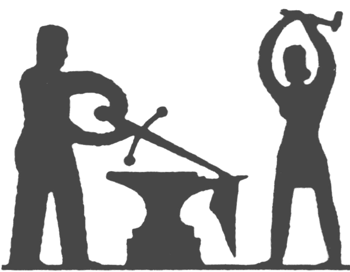I am ordained United Methodist pastor in Detroit, recently retired. I still write and teach; currently adjunct faculty at Ecumenical Theological Seminary in Detroit.
I’m a participant in the non-violent movement resisting nuclear weapons though recently applied active nonviolence to the Detroit Water Struggle (in the last five years 100,000 homes having water shut off) and to the National Poor Peoples Campaign – originally initiated by MLK in the year before his assassination, and organized around the “giant triplets” of racism, militarism, and extreme materialism.
First met Clare at a bible study retreat in Philadelphia in 1988. A mutual friend of ours, Ched Myers, was finishing what came to be widely acknowledged groundbreaking commentary on the Gospel of Mark. He demonstrated that so many of Jesus actions, including healings, were in effect deeds of civil disobedience, breaking the Levitical law of the purity and debt codes. With him, Clare and I struggled through particular passages which brought us all into closer contact with the nonviolent spirituality of Jesus which she so reflects.
But our friendship was really sealed in 2002 when we were part of a week-long community institute in Greensboro, NC – the inaugural school of a project called Word and World. There, we were part of a bible study with Nelson Johnson, an amazing pastor and movement leader who had been wounded in the 1979 Greensboro Massacre where five labor organziers were killed by members of the Klan. He was and is a continuing inspiration to both of us. Focusing that school on the history of the massacre, contributed to a process which eventually led to the first Truth and Reconciliation Commission in the US. Recently, the City of Greensboro formally apologized for the role of its police department in that massacre.
Our bible study together for the week considered the Book of Acts as a gospel of the beloved community. I think of Clare’s faith and witness, as being in that tradition. Scholars suggest Acts functioned almost as a handbook for the way in which early Christians should comport themselves on trial before the political and judicial authorities – recounting some seven arrests and as many appearances. The conversion of St. Paul took place while he was executing an arrest warrant. The story says that he met the resurrected Christ on the road, and so realized he was, in effect, on the wrong end of the warrant. He himself is eventually arrested for trespass or being accessory to trespass. At the conclusion of the book, Paul remains under house arrest for two years, awaiting trial in Rome. Sounds familiar.
Clare is dear friend. Has been for 20 or 30 years. I love her. I know the Grady clan in Ithaca, and have shared with them in grief and joy. When her mother died a few years ago, her family and community dug and covered a grave for her on a NY hillside. To be invited into that was a sacred sharing. I’ve also danced with them in celebrations which can be of joyous abandon. There is music in her life.
She is someone I pray for. That applies to her health and healing (I understand the court is aware of her recent ailments and physical vulnerability). And I’ve been praying for her in that, but also for liveliness and faithfulness to her conscience.
Over the years we have walked together as she has discerned actions of risk and nonviolence. I wouldn’t count myself her pastor, but maybe we are what the Irish call a “spiritual friends.” One time we talked about the connection between conscience and discernment in action. She was confused when I referred to conscience as what the New Testament calls a spiritual gift. We do both consider conscience an aspect of spirituality and the inner life. On the one hand, it is part of us which can be formed by study and prayer, as well as by experiences and mentors (she has been blessed with remarkable ones, some of whom we share in our formation). But it is also a gift, a charism, by which the Spirit of God can call us to discern word and action. It’s not a set of principles so much as a living way of listening. That is what Clare possesses and lives by – a deep listening for God. In that sense it is not an individual thing, but a gift for the building up of community, one which she shares freely. If you don’t exercise your conscience as a gift, it withers – that is an ailment Clare Grady has never suffered.
Her commitment to nonviolence is very strong. For her it is no tactic but a way of life whole-cloth from the smallest gesture or discipline to large public acts. There is one of the Hebrew Bible prophets who is told to hold out a plumbline to peoples and nations and empires. By it they are measured, found to be crooked or teetering to collapse. If I think of the plumbline as nonviolence I can’t tell if Clare is the one holding it out to us, or if her life is such that she is herself a plumbline for me and others.
